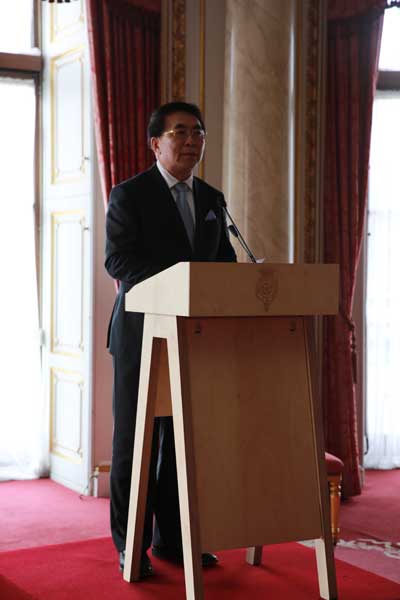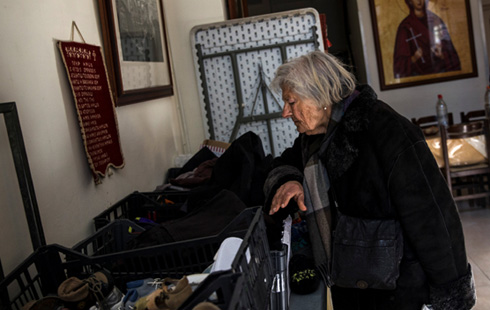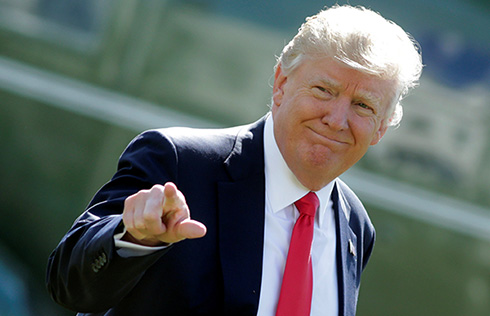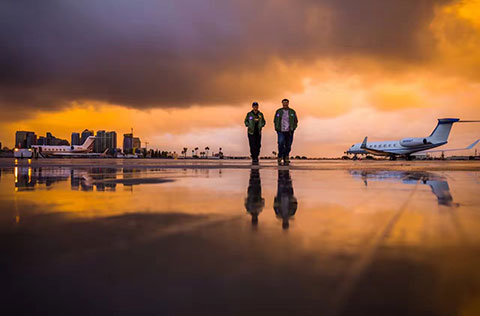UK royals promote China science teamwork
China's top scientific research institute has joined up with a member of Great Britain's royal family to attract British scholars to do research in China.
|
 |
|
Bai Chunli, president of the Chinese Academy of Sciences, makes a speech during a ceremony to launch the President's International Fellowship Initiative on Monday in Buckingham Palace. [Photo/chinadaily.com.cn] |
Prince Andrew was on hand as Bai Chunli, president of the Chinese Academy of Sciences, spoke about the President's International Fellowship Initiative on Monday in Buckingham Palace. Bai said it is the right time for Western scientists to do research in China.
First launched in 2013, the initiative has given 2,800 scientists the chance to work in China in one of four categories: distinguished scientist, visiting scientist, postdoctoral researcher or international PhD student. Its support of the work of 205 Britons, like Sir Andre Geim, a Nobel Prize laureate, has included lecture trips and cooperative research at CAS. This year, 22 British scientists are expected to work in China.
With Prince Andrew's support, the initiative was renamed the Duke of York-CAS President's International Fellowship Initiative in the UK.
"I am reminded of the Chinese who went West for advanced learning in the late '70s and early '80s, including coming to England for research and study," Bai said. "Now it is time for international scientists, including scholars here, to go to China for scientific opportunities, supported by Chinese programs. We can also consider this a natural Chinese contribution to global science."
Prince Andrew said, "If we are going to continue to be at the forefront of science, technology and engineering, we will have to work with many different organizations or countries where we can get access to the best science.
"Of course, the best science is done in the United Kingdom, but there are other countries in which equally good science goes on and China is one of them."
The CAS, the nation's largest scientific research body and primary scientific advisory group, has more than 100 institutes and employs over 68,000 scientific staff.
Bai said, "With this effort that the Duke of York and I are doing today, we hope to bring a lot of UK scientific talent to China to work and to explore scientific unknowns and to address common challenges with our scientists."
Robert Hilton of the University of Durham and Jin Zhangdong of CAS' Institute of Earth Environment received the 2016 China Academy of Sciences International Partnership Award for Young Scientists for their work on earthquake-triggered increases in biospheric carbon from a mountain belt.




















